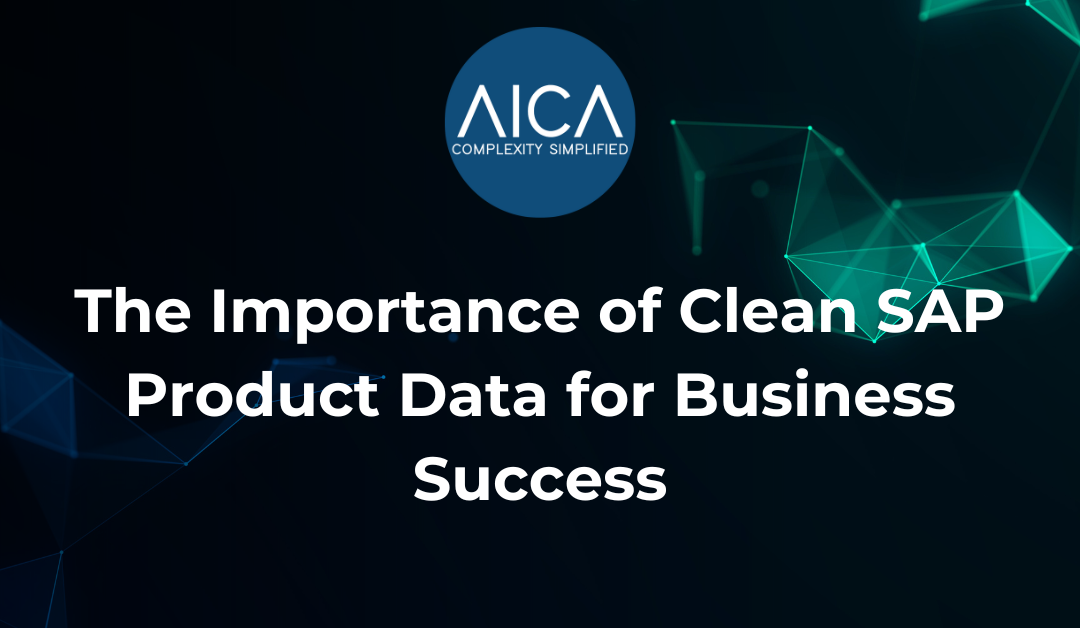SAP systems are the backbone of many organisations, streamlining processes across procurement, inventory, production, and financial management. However, the effectiveness of these systems hinges on the quality of the data they process. Clean product data—free from errors, inconsistencies, and redundancies—is critical for ensuring that SAP systems operate efficiently and deliver accurate, actionable insights.
In this article, we’ll explore why clean product data is vital for SAP systems, the challenges posed by dirty data, and how businesses can achieve and maintain data quality.
What Is Clean Product Data?
Clean product data refers to information that is accurate, consistent, complete, and formatted correctly. This includes eliminating duplicates, correcting errors, standardising naming conventions, and filling in missing attributes. For organisations using SAP systems, clean product data might include:
- Unique Identifiers: Unique product codes to avoid duplicates.
- Standardised Descriptions: Consistent and clear naming conventions across all records.
- Accurate Pricing and Cost Data: Current and precise cost details for procurement and budgeting.
- Detailed Specifications: Attributes such as dimensions, weight, and material composition.
- Supplier Information: Up-to-date contact and certification details for procurement efficiency.
Why Clean Product Data Is Essential in SAP Systems
1. Streamlined Procurement Processes
Clean product data ensures that procurement teams can easily identify the correct items, reducing errors in purchase orders and minimising delays. Consistent and accurate supplier data also helps in negotiating better terms and consolidating purchases.
2. Accurate Inventory Management
SAP systems rely on clean product data to maintain accurate inventory records. Dirty data can lead to overstocking or stockouts, increasing holding costs and disrupting production schedules. Clean data enables real-time visibility into stock levels, ensuring better inventory control.
3. Enhanced Production Planning
Inaccurate product data can cause delays in sourcing materials and hinder production workflows. Clean data ensures that manufacturing teams have access to precise information about raw materials and components, enabling smoother production planning and reducing downtime.
4. Improved Reporting and Decision-Making
SAP systems generate insights and reports based on the data they process. Dirty data skews these reports, leading to poor decision-making. Clean data ensures accurate analytics, helping businesses make informed strategic and operational decisions.
5. Cost Savings
Dirty data can lead to hidden costs, such as errors in procurement, excess inventory holding costs, and operational inefficiencies. Clean product data reduces these risks, enabling businesses to optimise resource allocation and cut unnecessary expenses.
6. Compliance and Risk Management
Many industries have strict regulatory requirements for data accuracy, especially in procurement and supplier management. Clean product data ensures compliance with these regulations, reducing the risk of fines or reputational damage.
The Risks of Dirty SAP Product Data
When product data is inconsistent, incomplete, or outdated, businesses face several challenges:
- Procurement Errors: Incorrect or duplicate records lead to purchasing the wrong items or ordering unnecessary stock.
- Inventory Discrepancies: Dirty data creates inaccuracies in stock records, causing overstocking or critical shortages.
- Production Delays: Incomplete specifications delay the sourcing of essential materials, disrupting manufacturing workflows.
- Compliance Issues: Missing certifications or outdated supplier details can result in non-compliance with industry standards.
- Inefficient Reporting: Skewed data produces unreliable reports, reducing the effectiveness of decision-making.
How to Achieve Clean SAP Product Data
- Data Cleansing
Start by identifying and removing duplicates, correcting errors, and filling in missing details. Automated tools can streamline this process, saving time and reducing manual effort. - Standardisation
Implement consistent naming conventions, units of measurement, and formatting rules to ensure uniformity across all records. - Data Enrichment
Add missing attributes, such as classifications, detailed specifications, and supplier details, to create a comprehensive dataset. - Integration and Governance
Ensure that data from multiple sources integrates seamlessly into your SAP system. Establish data governance policies to maintain consistency and prevent future errors. - Continuous Maintenance
Regularly audit and update your data to keep it accurate and relevant. Implement ongoing data quality checks to ensure long-term reliability.
How AICA Supports Clean Product Data for SAP Systems
AICA helps organisations achieve and maintain clean, enriched product data for their SAP systems. Our solutions combine advanced automation with expert oversight to ensure high-quality data tailored to your operational needs.
Our Services Include:
- Data Cleansing: Identify and resolve duplicates, errors, and inconsistencies efficiently.
- Data Enrichment: Add missing product attributes, classifications, and supplier details for more actionable data.
- Standardisation: Implement consistent naming conventions and formats across all product records.
- Seamless Integration: Our solutions integrate directly with SAP systems, ensuring a smooth data transfer and ongoing compatibility.
- Continuous Maintenance: We help organisations establish ongoing data quality processes, ensuring your SAP system remains a reliable source of truth.
Final Thoughts
Clean product data is the foundation of effective SAP system performance. From improving procurement and inventory management to enhancing reporting and compliance, high-quality data drives operational success and strategic decision-making. By partnering with us, organisations can maximize the value of their SAP systems and gain a competitive edge in their industry.
Ready to transform your SAP product data? Contact AICA today to learn how we can help your business achieve and maintain high-quality data.
Copyright Reserved © AICA Data International Ltd 2024

